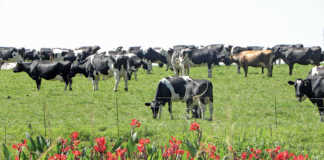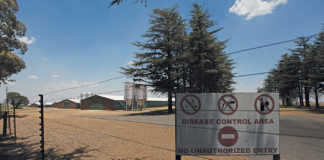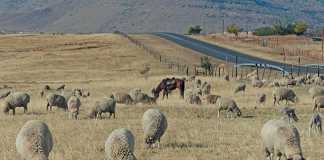Is your tractor using a lot of fuel? This could be due to:
- Its mechanical condition;
- Inadequate maintenance;
- The way it is driven;
- The way in which implements such as ploughs are used.
Saving fuel
Managing all these factors carefully will cut down on fuel wastage, reduce operating costs and lead to greater reliability. Here’s what to watch out for:
Mechanical problems
- Overheating, sometimes with the engine boiling. This causes a loss of power. Keep your eye on the temperature gauge.
- Brakes binding. This also results in a loss of power as well as premature brake wear. The problem can be detected by smell and smoke.
- Leaks in fuel system – unused fuel leaks away.
- Fuel in sump due to faulty fuel injectors. A smell of fuel on the dipstick is normally a sign of this problem.
- Black exhaust smoke – caused by a clogged air filter, operating the tractor in too high a gear, or over-fuelling by the injector system.
- Blue exhaust smoke. The engine sump may be too full, the engine itself may need overhauling, or oil is being drawn into the engine from an overfilled or unserviced wet-type air cleaner.
- Incorrect tyre pressures. If pressures are too high, the wheels might slip excessively; if too low, extra power will be needed. Both conditions increase fuel consumption.
- Ballast weights. These must be in place to prevent excessive tyre slippage.
Preventing fuel wastage
- Use a funnel and take care when refuelling.
- Avoid idling the engine simply to charge the battery. The battery should be charged only when the tractor is operating.
Service and maintenance
- Perform the daily checks and regular maintenance services as described in the 21 October and 4 November issues of Farmer’s Weekly.
- Look out and listen for anything unusual. This could prevent a major problem from occurring.
- Wash your tractor regularly to stop dirt from causing damage.
- Park your tractor under shelter to protect the instruments, tyres and paintwork from weather damage.
Driving tips for greater fuel economy
- Accelerate and brake smoothly.
- Select the right gear. Engaging too high a gear overloads the engine and transmission.
- Don’t rev the engine unnecessarily.
- Stop the engine when not operating – don’t let it idle.
- Don’t work the engine hard when it is cold.
- Take care of the tyres and avoid tyre slippage as much as possible. Maintain the correct tyre pressure at all times, avoid as far as possible getting bogged down, and ensure that the tyres are not too worn.
Using implements correctly
- Match the plough, cultivator or other implement to the tractor’s capacity, the application and the terrain.
- Ensure that it has been set correctly.
- Operate at the recommended speed – not too fast or too slow.
- Make sure the implement is hitched properly and that the right hydraulic function is selected.
- Adjust the chains correctly.
Work preparation
- Plan the work carefully and check the implements beforehand.
Fuel storage
It is vital that diesel fuel be kept clean and free from water. Water in the fuel system can cause engine components to seize, leading to very costly repairs.
- Do not use galvanised containers.
- Do not use fluffy cloths to clean your containers – the fluff can cause problems.
- Storage tanks and drums should be mounted on trestles at an incline (see diagram). This allows any water in the fuel to accumulate at the bottom, where it can be drained off.
Refuelling
To prevent wastage and water moisture problems, adhere to the following:
- Fill up every evening after work to stop condensation forming in the tank.
- Use a clean pipe or funnel.
- Avoid spilling fuel.
- Do not smoke when filling up and never use a naked flame to look into tank.
- Check that the vet hole in the tank cap is open, and tighten the cap securely.
In-field safety standards
Tractor
• The driver should be properly seated before operating the machine.
• Check all instruments, steering, brakes and lights.
• Latch the brakes for travelling on the road and unlatch them for tight headland turns.
• Make sure there is nothing in the way of or below the tractor when driving off.
• Check that the licence is in the holder.
• No passengers are allowed on the tractor when it is moving.
• Make sure the gearshift is in neutral before you start the engine.
• Don’t drive too fast and keep both hands on the steering wheel.
• Disengage the diff lock after use.
• Use the drawbar for towing. Do NOT attach a tow line to the top link hitch brackets.
• Always wear overalls when operating the tractor. If using chemicals, wear proper protective clothing.
• Avoid freewheeling down steep slopes – it is easy to lose control.
• Drinking of alcohol is not allowed when operating the tractor.
Trailer
• Ensure that the trailer is properly hitched and locked, and safety chains are fitted.
• Support the trailer drawbar when unhitching.
• Check that the trailer’s brakes and lights are working and the PTO shaft cover and guard are in place. Make sure loose items are secured.
• Check that the licence is in the holder.
• Make sure passengers are seated before driving off.
• Release the clutch slowly when pulling away.
• Ensure that the load is positioned near the axle of a single-axle trailer.
Implements
• Match the tractor, implement and trailer to the application and terrain.
• Nobody should be between the tractor, implement or trailer while hitching, and the hitching should be done securely.
• When unhitching, support the trailer or implement if it is in a raised position.
• No passengers should be on the implement or tractor.
• Do not adjust the implement while it is in operation.
Accidents
• If anyone has been hurt, help them as far as possible.
• Report any accident to the police within 24 hours if on a public road.
• Write down the name and contact details of other people involved.
• If there has been a death or injury, report this immediately to the police and leave the tractor where it is until instructed by the police.
• Do not drink alcohol before reporting an accident.
Acknowledgements:
This series is based on a tractor and implement operating and maintenance training course for small-scale farmers, operators and contractors. The course was originally commissioned by, and developed for, the SA Cane Growers’ Association by Peter Hittersay, who later revised it for the Limpopo agriculture department’s Agribusiness Development Academy. Peter is grateful to both parties for their permission to reproduce course material in Farmer’s Weekly.












